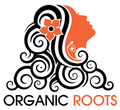Definition of henna.
The leaves and branches of the henna bush are ground up to make a green powder that smells like grass. The purest henna on the market is this. Henna powders that include possibly harmful compounds are available on the market. Make sure the henna you're buying is truly pure.
What Is Henna's History?
Henna is grown in several locations, including India, Morocco, Egypt, Africa, and the Middle East—basically, anywhere with a dry climate. Genuine henna from Yemen, Morocco, Rajasthan (Fresh Organic Rajasthani Indian Henna Powder), and Pakistan is available at Organic Roots (Organic Roots fresh henna powder for hair).
Why use henna over artificial dyes?
Genuine henna should be completely natural and free of any extra pesticides, ammonia, peroxide, bleaches, mineral oils, surfactants, silicones, waxes, or dangerous compounds. Except in the case of a herbal blend that also includes other herbs, pure henna shouldn't contain any additional substances. These herbal mixes are of the highest caliber. Try henna if you've been using box dyes to color your hair from copper to black and are unhappy with how quickly it fades (combined with Indigo, Katam, or Organic Cassia Obovata).
There will be little to no fading after applying numerous coats of henna. Henna and indigo are permanent colors! Henna has a smell that is similar to freshly cut grass, which makes it much more tolerable than commercial chemical colors. To find out if you are allergic to henna, you should conduct a skin patch test on the inside of your elbow, just like you would with any new product.
How Can I Tell If My Henna Is 100 Percent Natural?
Some henna shops can potentially be selling henna that has been tampered with. Others have changed the powder's color by adding metallic salts and other substances (particularly in boxed varieties offered in health food stores). To achieve black, brown, and copper tones, henna must be mixed with other herbs like indigo, khatam, and cassia. Until then, henna stains in orange-red tones. Don't use henna or other natural hair dyes that include undisclosed ingredients. To confirm that the henna you have is wholly pure, you can carry out the following tests at home.
- Through a sand test, a grain of henna is sandwiched between two sheets of glass. If you hear a scratching noise or notice scratches on the glass, your henna powder has been contaminated with sand. To maximize their profits, some vendors add sand to the ends of their henna powder. At Organic Root, we don't employ this method since we want our customers to have the best.
- If the henna powder appears overly bright green and forms a green pool when combined with water, the green dye has been added to the henna powder. If you have lighter-colored hair, this powder will change the color of your hair.
- A few stray hairs that have been shed can be colored by adding a teaspoon of henna to warm water. After dyeing the hair, combine 1 ounce of peroxide with 20 drops of ammonia. Incorporate the hair into this answer. Nothing will happen, so you have pure henna. If the hair strands melt, boil, instantly change color, or emanate an odor that is not grassy, metallic salts have contaminated the henna. DO NOT dye your hair with henna.
Avoid any cartons or bags that say "Black henna" if Indigo is not mentioned on the label. This is often modified indigo that doesn't need henna to generate a black hue. The term "black henna" doesn't exist. Para-phenylenediamine (PPD), which is known to irritate and burn the skin, is a component of these "black henna" products.
Instead, choose the more secure shades of henna and indigo for dark tones. The term "body art quality" (BAQ) describes how well henna works as a medium for body art. Because some hennas are ground more coarsely than others, they have a propensity to clump in the applicator tip, making them unsuitable for body art.
Occasionally, there may be tiny sticks in the henna powder. Do not be afraid! Sometimes the troublesome sticks survive the grinding and sifting procedure and are safe. Sift your henna powder before combining if unsure. We only stock the highest-quality henna powders at organic rootspk!




